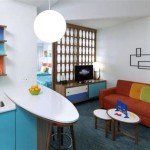```html
UT Knoxville Interior Design: Shaping Spaces, Shaping Futures
The Interior Design program at the University of Tennessee, Knoxville (UTK), housed within the College of Architecture and Design, provides a comprehensive and rigorous education for aspiring interior designers. The program emphasizes critical thinking, creative problem-solving, and technical proficiency, preparing students to become leaders in the field. Its curriculum is structured to foster innovation, sustainability, and ethical practice, aligning with the evolving demands of the profession and the needs of society.
The UTK Interior Design program is accredited by the Council for Interior Design Accreditation (CIDA), a testament to its high standards and commitment to quality education. Accreditation signifies that the program meets rigorous criteria related to curriculum, faculty qualifications, resources, and student outcomes. Graduates of CIDA-accredited programs are often preferred by employers and are eligible to sit for the National Council for Interior Design Qualification (NCIDQ) examination, a crucial step towards professional licensure.
Curriculum Structure and Core Competencies
The curriculum is designed to build a strong foundation in design principles, history, and theory, while simultaneously developing practical skills in areas such as space planning, materials specification, lighting design, and construction documentation. Students progress through a series of studios, lectures, and seminars that progressively increase in complexity, challenging them to apply their knowledge to real-world scenarios.
Specifically, the program emphasizes visual communication skills. Students learn to effectively communicate design ideas through sketching, rendering, model making, and digital presentations. The development of hand-drawing skills provides a solid foundation for understanding spatial relationships and form development, while digital tools like AutoCAD, Revit, and SketchUp enable students to create accurate and detailed construction documents and 3D visualizations.
Furthermore, the program integrates sustainable design principles throughout the curriculum. Students learn about environmentally friendly materials, energy-efficient lighting systems, and strategies for reducing the environmental impact of interior spaces. This focus on sustainability reflects the growing importance of responsible design practices in the industry and prepares students to create spaces that are both aesthetically pleasing and environmentally sound.
Another core aspect of the curriculum is the study of human behavior and the impact of the built environment on human well-being. Students learn about ergonomics, accessibility, and the psychological effects of color, light, and spatial arrangement. This understanding allows them to create spaces that are not only functional and aesthetically pleasing but also promote health, safety, and comfort for occupants.
The integration of technology is also a key component. Students are required to become proficient in using a variety of software programs relevant to the industry. This ensures they are prepared for the technological demands of the profession and can readily adapt to new technologies as they emerge.
Faculty Expertise and Research Opportunities
The faculty in the UTK Interior Design program consists of experienced professionals and scholars who bring a diverse range of expertise to the classroom. Faculty members are actively engaged in research and creative practice, contributing to the advancement of knowledge in the field of interior design. Their research interests span a wide range of topics, including sustainable design, healthcare design, universal design, and the history of interior design.
Students have the opportunity to participate in faculty-led research projects, gaining valuable experience in conducting research and contributing to the body of knowledge in the field. These research opportunities provide students with a deeper understanding of design principles and practices, as well as enhance their critical thinking and problem-solving skills.
The program also benefits from strong connections with industry professionals. Guest speakers, workshops, and internships provide students with opportunities to network with practicing designers and learn about the latest trends and technologies in the field. These connections can lead to valuable mentorships and job opportunities upon graduation.
Faculty members also actively support student development through individual advising and mentorship. They provide guidance on career planning, portfolio development, and professional networking. This individualized attention helps students to identify their strengths and interests and to develop a clear path to achieving their career goals.
Experiential Learning and Community Engagement
The UTK Interior Design program emphasizes experiential learning through studio projects, internships, and community engagement initiatives. Studio projects provide students with opportunities to apply their knowledge and skills to real-world design challenges. These projects often involve working with clients and stakeholders, allowing students to gain firsthand experience in the design process.
Internships are an integral part of the program, providing students with the opportunity to work in professional design firms or related organizations. Internships allow students to gain practical experience in the industry, develop their professional skills, and build their portfolios. The program encourages students to pursue internships in a variety of settings, including residential design firms, commercial design firms, healthcare design firms, and government agencies.
Community engagement initiatives provide students with opportunities to use their design skills to benefit the local community. These initiatives often involve working with non-profit organizations or community groups to design spaces that meet the needs of underserved populations. These projects provide students with a sense of social responsibility and allow them to make a positive impact on their communities. For example, students might work on designing accessible spaces for individuals with disabilities, creating therapeutic environments for patients in healthcare facilities, or revitalizing community centers.
The program also facilitates study abroad opportunities, allowing students to experience design in different cultural contexts. These experiences broaden students' perspectives, enhance their creativity, and prepare them to work in a globalized world. By studying design in other countries, students gain a deeper understanding of cultural influences on design and develop the ability to adapt their designs to different contexts.
Furthermore, the program participates in design competitions at the regional, national, and international levels. These competitions provide students with opportunities to showcase their work and to compete against their peers from other design schools. Participation in design competitions helps students to develop their critical thinking skills, refine their design skills, and build their portfolios.
The program actively involves alumni in its activities, further enriching the student experience. Alumni often serve as guest speakers, mentors, and internship providers. This ongoing engagement between alumni and the program helps to ensure that the curriculum remains relevant and responsive to the needs of the industry.
The UT Knoxville Interior Design program is committed to fostering a supportive and inclusive learning environment where all students can thrive. The program values diversity and encourages students to explore their own unique perspectives and experiences.
The resources available to students include state-of-the-art computer labs, fabrication shops, and design studios. These facilities provide students with the tools and equipment they need to create high-quality design projects. The program also maintains a comprehensive library of design resources, including books, journals, and digital databases.
Graduates of the UTK Interior Design program are well-prepared for successful careers in a variety of design fields. They are sought after by employers in residential design, commercial design, healthcare design, hospitality design, and government agencies. Many graduates also go on to pursue advanced degrees in interior design or related fields.
The program's commitment to excellence in education, research, and service has earned it a reputation as one of the leading interior design programs in the region. It continues to evolve and adapt to the changing needs of the profession, ensuring that its graduates are well-prepared to shape the future of interior design.
```
Study Utk College Of Architecture Design

School Of Interior Architecture Utk College Design

University Of Tennessee At Knoxville Art And Architecture Building Utk College Design

Ad College Guide University Of Tennessee Knoxville Archdaily

4 2 Bachelor Of Science In Interior Architecture Master Utk College Design

Interior Architecture Students Collaborate With Studio In Romania Utk College Of Design

Utk Art And Architecture Building
School Of Architecture Ranked 10th Overall News Utdailybeacon Com
School Of Architecture Ranked 10th Overall News Utdailybeacon Com

Ut Hodges Library One Stop Mhm Architects








